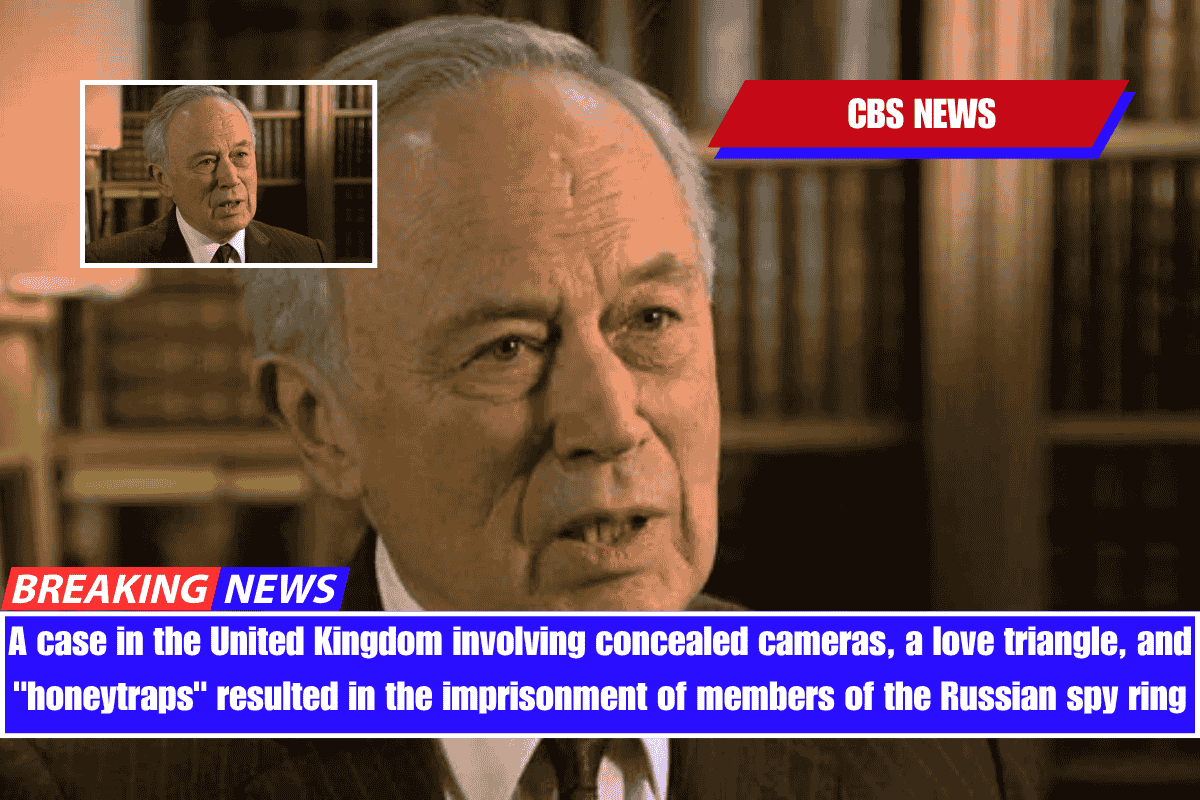A U.K. court sentenced six Bulgarians to up to ten years in prison on Monday for belonging to a Russian espionage cell described as resembling something out of a “spy novel.”
Investigators discovered fake passports, hidden cameras, a spy love triangle, and secret online chats about potential abductions and “honeytraps”.
Orlin Roussev, 47, led the operation from a dilapidated former guesthouse in the eastern English seaside town of Great Yarmouth, where police discovered a “treasure trove” of spy equipment.
Judge Nicholas Hilliard sentenced the group at London’s Old Bailey criminal court, saying the risks of spying on the United Kingdom and the people targeted would have been obvious.
The cell’s activities are thought to be among the “largest and most complex” enemy operations ever discovered on British soil.
According to the BBC, Judge Hilliard stated that the defendants were “motivated by money,” with sums of up to 1 million euros ($1.1 million) being discussed.
The judge also stated that the sums paid to the spies demonstrated the importance of their covert activities to Russia.
The spies crossed borders in the United Kingdom, Austria, Spain, Germany, and Montenegro, the court heard.
Hundreds of spy gadgets were discovered on Roussev’s property, including those hidden inside a rock, men’s ties, a Coke bottle, and even a Minions toy.
Police discovered six operations dating back three years to August 2020 in a massive cache of Telegram messages on Roussev’s phone.
In the chat, Roussev, nicknamed “Jackie Chan,” referred to his spies as Minions — characters from the animated film “Despicable Me” — while his second in command, Biser Dzhambazov, 44, went by “Mad Max.”
In one sinister message about a possible abduction, ringleader Roussev replied: “If you are serious about it, I have the resources to kidnap, drug, and lock him up in a secure cave.”
Like a “spy novel”
Dominic Murphy, the head of Counter Terrorism Command at London’s Metropolitan Police, described the cell as a “extremely sophisticated intelligence gathering operation.”
The network’s activities posed a “real threat” to both targeted individuals and national security, with tactics reminiscent of a “spy novel,” he stated prior to the sentencing hearing.
The cell was led by alleged Russian agent Jan Marsalek, an Austrian businessman wanted by Interpol following the collapse of German payment processing company Wirecard.
Marsalek served as a liaison for Russian intelligence and Roussev.
Roussev, Dzhambazov, and Ivan Stoyanov, all 33, pleaded guilty to spying. They received sentences of ten years and eight months, ten years and two months, and five years, respectively.
The other three, former competitive open water swimmer Tihomir Ivanchev, 39, laboratory assistant Katrin Ivanova, 33, and beauty salon business owner Vanya Gaberova, 30, were convicted of espionage following a March trial.
They received sentences of eight years, nine years and eight months, and six years and eight months, respectively.
Gaberova’s defense lawyer, Anthony Metzer, claimed Gaberova was “controlled, coerced into this conspiracy by Mr. Dzhambazov,” her lover who was also involved with Ivanova, according to the BBC. The court was informed that she had been diagnosed with depression, panic disorder, claustrophobia, and anxiety.
The network conducted a number of surveillance and intelligence operations against individuals and locations of interest to the Russian government.
They discussed using Gaberova as a “honeytrap” to apprehend a prominent journalist and dropping pigs blood on the Kazakhstan embassy in London via drone.
Another plot aimed to collect mobile phone data from Ukrainian soldiers believed to be trained at a US airbase in Germany.
When police raided the cell members’ homes in February 2023, they discovered Dzhambazov, who had been in a long-term relationship with Ivanova, naked in bed with his lover Gabrielova.
Gaberova testified that she had been duped by Dzhambazov, whom she mistook for an Interpol officer suffering from brain cancer.
Bellingcat investigative journalist Christo Grozev was among those targeted by the network after he revealed Russian links to the Novichok nerve agent attacks in Salisbury, England, in 2018 and the downing of a Malaysia Airlines plane in July 2014.
Discovering that Bulgarian spies had followed his and his family’s movements and spied on their communications for an extended period of time had been “terrifying, disorientating, and deeply destabilizing,” he said in an impact statement.


















Leave a Reply